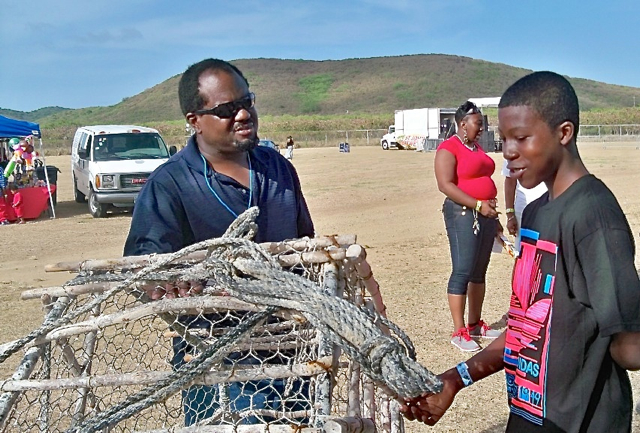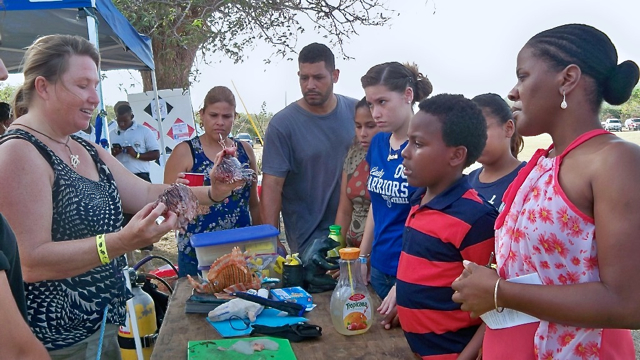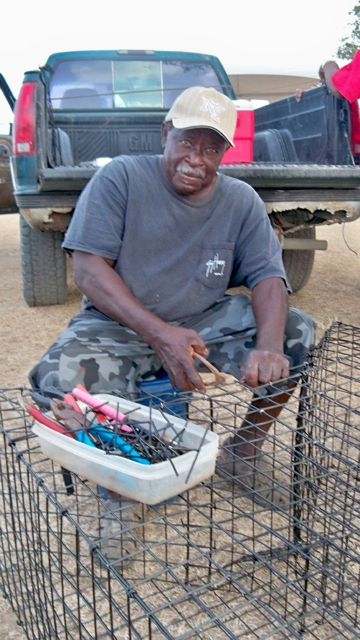
Fishermen demonstrated how to build fish traps; community activists talked about the invasion of lionfish and Department of Natural Resources personnel talked about protecting the fish habitat.
Lia Ortiz, a consultant with the National Oceanic and Atmospheric Administration’s coral reef conservation program and organizer, said Saturday’s event, held in the field at the St. Croix East End Marine Park headquarters on the South Shore, was three years in the making. Adults and youngsters alike seemed to benefit from the effort as they listened and watched various presentations at the picture- perfect venue once known as Camp Arawak.
“This event is to build awareness and an understanding of the significance of the role of fisheries in the community,” Ortiz said. “And to implement sustainable practices for fisheries so the resources are maintained for generations to come.”
In the shade of a huge tamarind tree, Thomas Daley, vice-chairman of the Fisheries Advisory Committee, and Roy Pemberton Jr., director of Division of Fish and Wildlife at DPNR, talked about fish traps.
Daley demonstrated how to build a wire fish trap. He said he prefers the old-fashioned stick, wire and net traps, but they are a lot more work. Daley called the traps a sustainable way of fishing that has been done for thousands of years, a practice that has kept the fisheries going.
“The fish only go in when they are ready,” Daley said.

Packauskas said 250 commercial fishers go out every day, and CORE would like to outfit them with containment units that they can put speared lionfish in. She added they would like to do a “Tails for Tanks” incentive, in which the fishers get a tank of air for each lionfish they turn in to CORE. She mentioned the tip line at 1-340-201-2340 to report sightings of lionfish.
“We want locals involved,” Packauskas said. “We all own the reef.”

“I learned about how the lionfish is eating all the fish in the reefs,” Scott said. She was giving a pledge, at the Blue Flag program table, to pick up her trash.
There was a mini film-festival on the lawn showing sustainable management and practices and the “Don’t Stop Talking Fish” film highlighting historical and current aspects of the fisheries.
There was entertainment that went on until midnight with a free concert hosted by MC Rashidi. Pressure Buss Pipe, Mada Nile, Junior P, La Fuerta Band, Kul-e Band, Dundy and more were the highlight of the evening.
Fisher of the Year Award went to Theodore “Chino” Hansen, 62, for efficiency of catch reporting to the U.S. Virgin Islands Division of Fish and Wildlife. He was given a weekend getaway for two on St. John, provided by Earthbound studios and a plaque made by Jan Mitchell.
The event was dedicated to Jeanette Ann Magras, who was killed recently in a domestic dispute on St. Thomas.
Earthbound Studies collaborated with NOAA and they partnered with Nature Conservancy, Friends of East End Marine Park, CORE, Coral World, St. John Brewers, and others.





